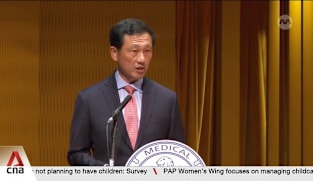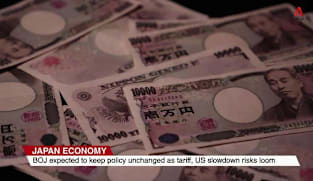Josephine Teo on Law Enforcement and Other Matters Bill
“Every SIM card in the hands of a scammer is a weapon,” said Second Minister for Home Affairs Josephine Teo in Parliament on Tuesday (Apr 2). She elaborated on how scammers have pivoted to using local SIM cards to reach prospective victims after being thwarted by measures such as blocking overseas calls that spoof local numbers and introducing the SMS Sender ID Registry. So, new offences are being introduced to target three groups of people who misuse local SIM cards to facilitate scams. The first group is irresponsible subscribers who give away their local SIM cards or provide their particulars to others to be used to sign up for local SIM cards. To address the challenge that the police face in proving knowledge or criminal intent, an irresponsible subscriber will be deemed liable in the following scenarios - they gave away their card for any gain, did not take reasonable steps to find out the identity and physical location of the recipient, or did not take reasonable steps to find out the recipient’s purpose for obtaining the card. The second group is middlemen involved in procuring or providing local SIM cards to scam syndicates. The police have also faced difficulties prosecuting such middlemen as it is hard to prove that they intended to abet an offence. A person who receives, supplies or possesses such local SIM cards may now be deemed liable without the prosecution having to prove knowledge or criminal intent if the cards were used for crime, or 11 or more cards were found in their possession. Criminal intent will also not have to be proven in cases of people buying, selling or renting a local SIM card registered with another person’s particulars. The third group is errant retailers, a small number of whom have used stolen or false credentials to register local SIM cards, which are then sold to scammers. There is currently no offence that specifically deals with such retailers and they might simply lose their contract with the mobile service provider. Making it a criminal offence will allow heavier punishment, including prison sentences, for employees involved in fraudulent registrations. The penalties for the new SIM card offences will be pegged to those for the misuse of Singpass credentials under the Computer Misuse Act. Changes to the law will also be made to allow the transmission of false messages for certain legitimate purposes, such as simulated phishing exercises to enhance awareness and vigilance against scams. Mrs Teo outlined other amendments being proposed. One is to allow the police to apprehend, not arrest, a person with a mental health condition who poses a danger to themselves or others, to take them for medical treatment - even if the timeframe of the danger is unspecified or not imminent. Another enables the police to not take further action for non-arrestable offences if the case is not serious or there are insufficient grounds to proceed.
“Every SIM card in the hands of a scammer is a weapon,” said Second Minister for Home Affairs Josephine Teo in Parliament on Tuesday (Apr 2). She elaborated on how scammers have pivoted to using local SIM cards to reach prospective victims after being thwarted by measures such as blocking overseas calls that spoof local numbers and introducing the SMS Sender ID Registry. So, new offences are being introduced to target three groups of people who misuse local SIM cards to facilitate scams. The first group is irresponsible subscribers who give away their local SIM cards or provide their particulars to others to be used to sign up for local SIM cards. To address the challenge that the police face in proving knowledge or criminal intent, an irresponsible subscriber will be deemed liable in the following scenarios - they gave away their card for any gain, did not take reasonable steps to find out the identity and physical location of the recipient, or did not take reasonable steps to find out the recipient’s purpose for obtaining the card. The second group is middlemen involved in procuring or providing local SIM cards to scam syndicates. The police have also faced difficulties prosecuting such middlemen as it is hard to prove that they intended to abet an offence. A person who receives, supplies or possesses such local SIM cards may now be deemed liable without the prosecution having to prove knowledge or criminal intent if the cards were used for crime, or 11 or more cards were found in their possession. Criminal intent will also not have to be proven in cases of people buying, selling or renting a local SIM card registered with another person’s particulars. The third group is errant retailers, a small number of whom have used stolen or false credentials to register local SIM cards, which are then sold to scammers. There is currently no offence that specifically deals with such retailers and they might simply lose their contract with the mobile service provider. Making it a criminal offence will allow heavier punishment, including prison sentences, for employees involved in fraudulent registrations. The penalties for the new SIM card offences will be pegged to those for the misuse of Singpass credentials under the Computer Misuse Act. Changes to the law will also be made to allow the transmission of false messages for certain legitimate purposes, such as simulated phishing exercises to enhance awareness and vigilance against scams. Mrs Teo outlined other amendments being proposed. One is to allow the police to apprehend, not arrest, a person with a mental health condition who poses a danger to themselves or others, to take them for medical treatment - even if the timeframe of the danger is unspecified or not imminent. Another enables the police to not take further action for non-arrestable offences if the case is not serious or there are insufficient grounds to proceed.



















